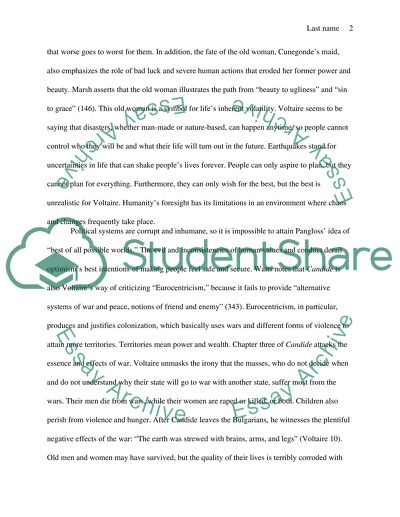Cite this document
(“Optimism is a Farce in Candide Assignment Example | Topics and Well Written Essays - 1250 words”, n.d.)
Retrieved from https://studentshare.org/literature/1444260-voltaire
Retrieved from https://studentshare.org/literature/1444260-voltaire
(Optimism Is a Farce in Candide Assignment Example | Topics and Well Written Essays - 1250 Words)
https://studentshare.org/literature/1444260-voltaire.
https://studentshare.org/literature/1444260-voltaire.
“Optimism Is a Farce in Candide Assignment Example | Topics and Well Written Essays - 1250 Words”, n.d. https://studentshare.org/literature/1444260-voltaire.


